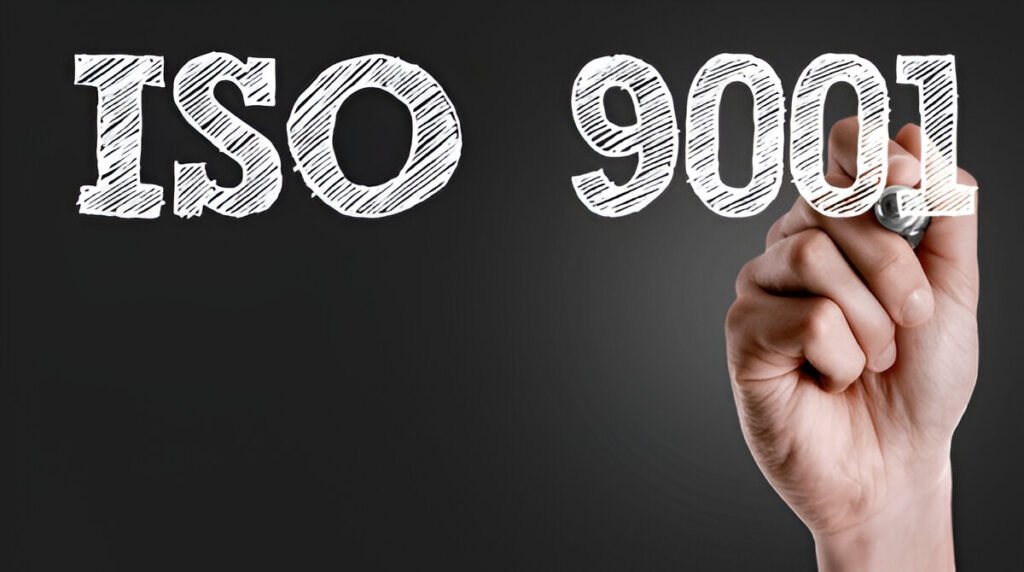
You may have heard about ISO 9001, an international standard on Quality Management Systems. This is the most widely adopted ISO standard in the world because of its adaptability and popularity. Almost any kind of organization can adopt this standard and have a management system that will continually improve.
Think of 2 tea stalls selling tea next to each other. Both of them have equal amount of crowd. Now you have to choose which one you should go for. Consider both of them make good tea. The texture of the tea and aroma are same. Even the cup they serve with is also same. Isn’t it difficult to choose as we always prefer the test of the tea when we choose between two? But suddenly you have noticed one thing. One tea stall is cleaning the cups with hot water and cleaning it properly while the other one is not doing the same. He is Deeping the cups is a water which has been used several times to clean the cups before. What will this create in your mind? Are you now more willing to go the shop where the tea staller is washing the cups with hot water for its better hygiene?


This little incident teaches us that not only the end products influence a customer to buy the product or take a service but also the way it has been produce can be a significant factor. Even now a days if you see the buying habit of the customers, you can see most of them look for a seller who has a better management system of its operation. Because it not only gives a vibe of good quality but ensures a consistent product or service to be received from that seller.
If you look at the clothing brands who are more focused on the compliances and good work environment rather than the price of the manufacturing cost, you will find that most of the brands look for a consistent manufacturing practice of the manufacturer of the cloths. Definitely price is going to be an important factor but if that comes with non-compliant practice, nobody is going to accept it. If you make your employees and workers work overtime and don’t give them the right wages, that business is not going to last well even if you give your customer a cheaper rate. The world is now more competitive than ever and if you fail to understand what a “Good Company” means, you will fall behind and your competitors will get the market.

To understand the concept of Quality Management System (QMS), you need to first understand what does “Quality” means. By the definition of ISO quality is “The degree to which a set of inherent characteristics of an object fulfils requirements.” Let’s go to the example of a cup of tea. What do you think the quality of a cup of tea is? Or tell me when you are going to give high price to a cup of tea?
The interesting thing is that the last question is not relevant to quality at all. It’s more related to grade. To understand quality, you need to first understand what “Grade” means, as in most of the cases we confuse quality with grade. According to the ISO standard, “Category or rank given to different requirements for an object having the same functional use”. For example, you want to travel from London to New York. You ride on a plane that has different classes like Business Class and Economy Class. In the business class, the seats are wider and more comfortable compared to an economy class seat. But both of them are in a single plane, and the plane will go to the same place, which is New York. If you say that the “Quality” of the Business Class was better than, you have picked the wrong word. It’s actually the grade that the airline company distinguishes intentionally based on different classes of people in society, based on their income. But when you are a passenger of an economic class and you want to buy an economy class ticket from different airlines, then comes the concept of “Quality,” as now you will check which one will fulfill your requirements. For example, you need 2 luggage and only China Eastern is offering 2 pieces of 20 kilo luggage capacity travelling from China to Korea. But other airlines are not giving that service. In that case, China Eastern’s service provides more quality for you.
Grade is something you will not compete for. But for Quality, you will have a lot of competition. For example, mobile companies bring mobile phones to the market in different price ranges. Because it is obvious that some people will have budget issues and others don’t. There are different segments of buyers in the market, so the phone companies like Samsung and Motorola bring different price range phones in the market to make sure their phones are sold to a large segment of people. But a particular customer will not get confused in buying the phone with a 1000 USD price, one with a 300 USD price, one usually. Most of the case a customer who has a budget of 300 USD will compare phones with 300 USD in the market. That’s why “Quality” has much higher competition than “Grade”.


Now, coming back to the concept of Quality Management System. Quality Management System (shortly QMS) is in every organization. A grocer has a system how he sells his groceries. And this system can vary from one grocer to another. The way one manages their business in his/her management system, or shortly QMS. The seller has a targeted customer, and he sells his goods or services based on that customer’s needs. Another seller can have a slightly different customer segment. So, in every business, it is important to know your customers first before you start manufacturing or procuring your product or developing your service. Also, the way a product or service is produced or developed can vary due to a lot more other reasons like the location of the business, geographical issues, cultural issues, environmental issues, tests or rules and regulations of the society or the country etc. So, the buyer needs to sell good products or services that fulfill the requirements of a customer. For example, a cup of hot tea is desirable along with the test and also the way the cups are cleaned. There can be a lot more other parameters. Now, as a tea seller, you should make sure you have a tea-making process that most of the customers like, and also, the taste needs to be good. There are a lot more issues can arise based up on your business context, which you need to identify and manage while operating your business. And this is called the Quality Management System.
Now let’s see what ISO 9000 says about Quality and Quality Management System:
2.2.1 Quality
An organization focused on quality promotes a culture that results in the behaviour, attitudes, activities and processes that deliver value through fulfilling the needs and expectations of customers and other relevant interested parties.
The quality of an organization’s products and services is determined by the ability to satisfy customers and the intended and unintended impact on relevant interested parties.
The quality of products and services includes not only their intended function and performance, but also their perceived value and benefit to the customer.
2.2.2 Quality management system
A QMS comprises activities by which the organization identifies its objectives and determines the processes and resources required to achieve desired results.
The QMS manages the interacting processes and resources required to provide value and realize results for relevant interested parties.
The QMS enables top management to optimize the use of resources considering the long- and short-term consequences of their decision.
A QMS provides the means to identify actions to address intended and unintended consequences in providing products and services.

Think of a pencil company selling pencils. Let’s consider a market where pencils are sold from 1 USD to 10 USD. Obviously, the pencil, which has a price of 10 US,D is ofthe highest grade and the one with 1 USD is the lowest grade. Now you have decided to sell pencils from 3 to 5 USD based on your manufacturing cost and profit margin and customer acceptability. Now you started making pencils, which are good and you have a decent number of customers who are buying you pencils because they are what the customers are looking for. On the other hand, another company is selling pencils at a high rate. But it does not have any QMS in its operation. Not having a QMS means its manufacturing process is not defined. It does not follow a single process and often it varies. Especially when the machine operator or the factory manager changes, the system changes as well and this affects the pencils. Sometimes the pencils that come out of the factory are not even 2 USD price level. This will make his customer drive away because they are paying 8 USD and getting 2 USD grade pencil. On the other hand, you are “Consistently” making the same grade of products and your customers know that they are getting the value of the pencils for which they are paying. Here, the term “Consistent” is the main point that I want to influence while describing QMS. A well-established QMS will always deliver consistent output of a product and service, and this will give your customers confidence in your products and services. And all the brands have this common thing in their business, “consistency”, regardless of whatever the grade is. Because there are luxury brands in the market and also “99 cent only stores” who are also doing business and making a good amount of profit, as well as a reputation in their customer segment.
To make your concept more clear and comprehensive, you can download the ISO 9001 standards and its family especially ISO 9002 standard which give the guideline for its implementation.
And that’s all for today. If you liked my blog, please don’t forget to put a comment and let me know what you liked most in this blog and what more you would like to know about QMS.
You can read more blogs on ISO 9001 consultancy service and how to manage your QMS Consultant.